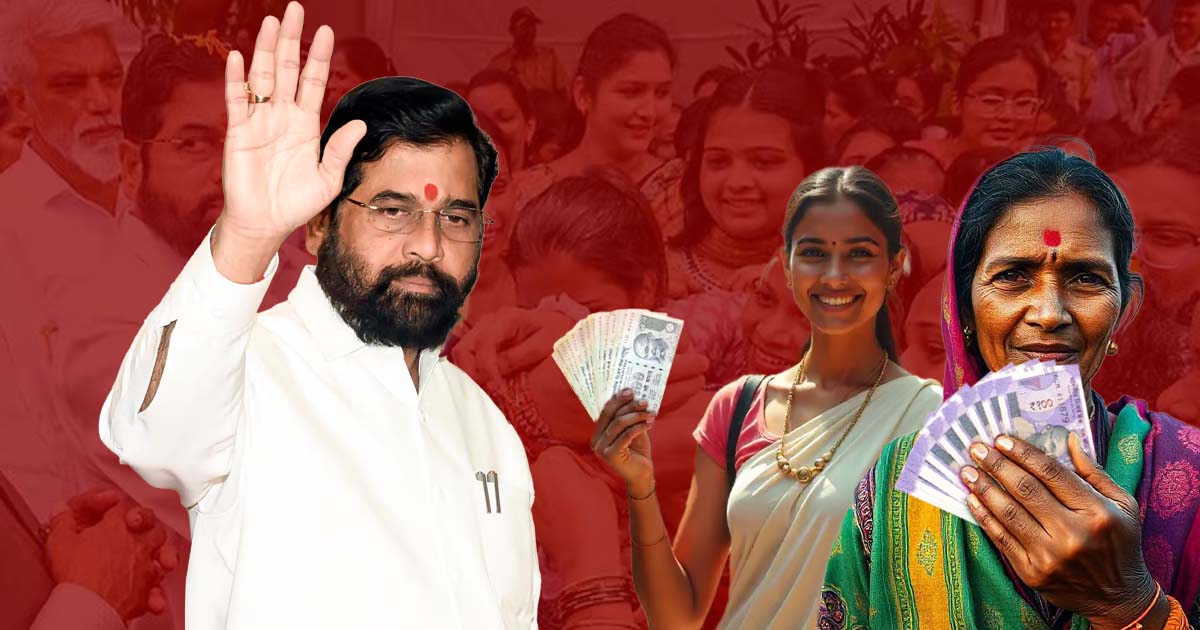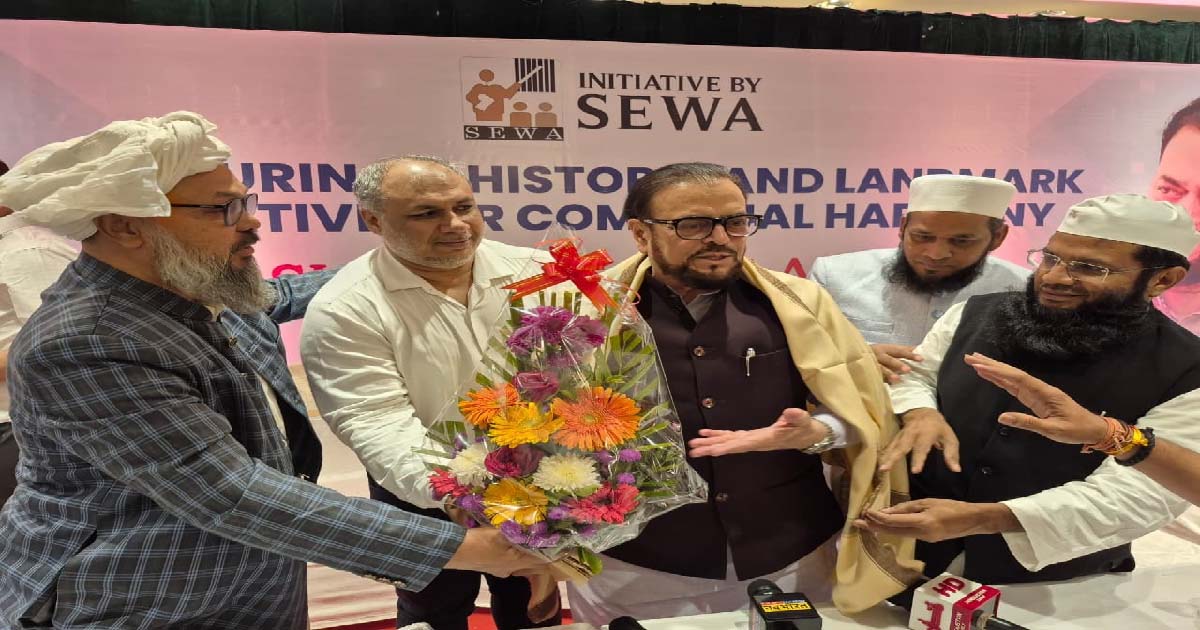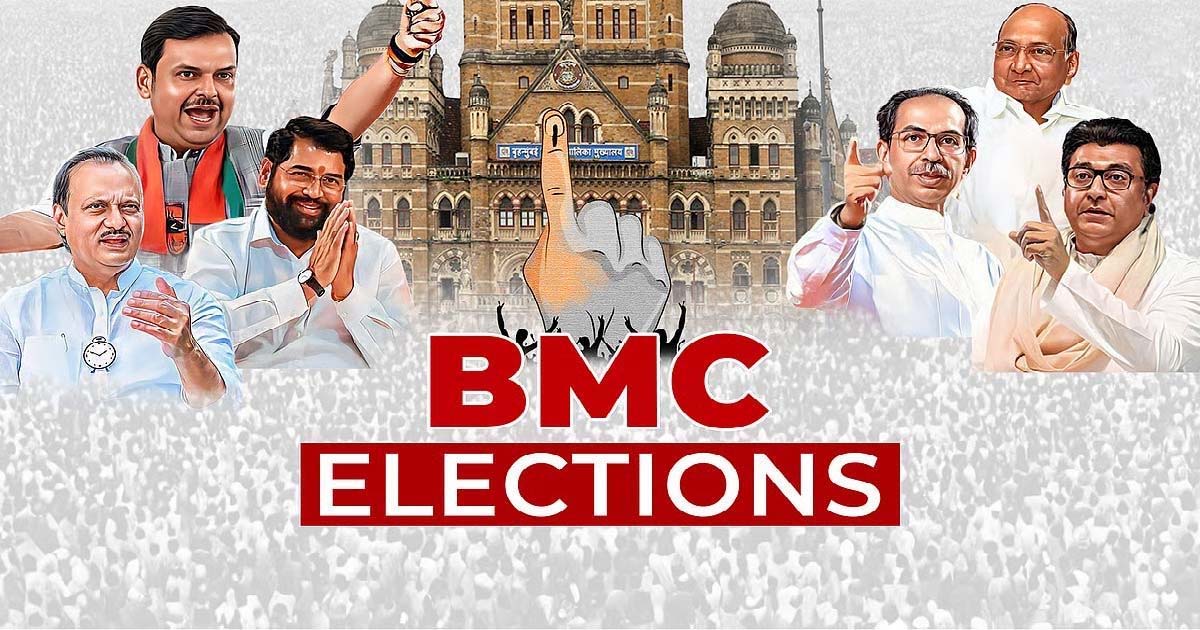Maharashtra
Maharashtra Elections 2024: Will The Ladki Bahin Yojana Be A Gamechanger For Mahayuti Or A Failed Poll Plank?

With the Maharashtra Assembly elections around the corner, political analysts are closely watching the effects of the ruling alliance’s Ladki Bahin Yojana, seen as a possible game-changer for the Mahayuti government, which includes Eknath Shinde’s Shiv Sena, the Bharatiya Janata Party (BJP), and Ajit Pawar’s faction of the Nationalist Congress Party (NCP).
While the scheme is viewed as a strategic move to win over women voters, recent defections from the ruling camp to the opposition suggest the political battle is not yet over and the voters might be signalling towards a change.
Launched by the ruling alliance, the Ladki Bahin Yojana aims to empower girls and women in Maharashtra, addressing a key demographic of voters. Before the scheme was paused due to the model code of conduct, the government had already transferred five instalments of ₹1,500 per month to 2.34 crore applicants. This amounted to a significant outlay of ₹17,174 crore, raising questions about the sustainability of such populist measures and their potential electoral impact in run up to the state elections.
Populist schemes: A proven strategy?
Populist schemes have long played a crucial role in Indian elections, from cash transfers and farm loan waivers to subsidised electricity and women-centric initiatives. In some cases, these schemes have significantly swayed voters, as seen in past elections across the country.
In Delhi in 2020, the Aam Aadmi Party (AAP) won a landslide victory by offering free electricity (up to 200 units), free water, bus rides for women, and improvements in government schools. These promises, particularly in education and women’s empowerment, resonated with lower- and middle-income voters, allowing AAP to secure 62 out of 70 seats.
In Telangana in 2018, the Telangana Rashtra Samithi (TRS) introduced the Rythu Bandhu scheme, which provided direct financial support to farmers. The scheme was credited for the party’s strong showing, winning 88 of 119 seats, and solidified TRS’s base among rural voters.
In Tamil Nadu, the Dravida Munnetra Kazhagam (DMK) promised financial assistance for women, free bus rides for women, and support for farmers and low-income households ahead of the 2021 elections. The DMK won 159 of 234 seats, defeating the ruling AIADMK. The promise of a monthly stipend for homemakers played a key role in mobilising women voters, contributing to the DMK’s success.
Shivraj Singh Chouhan-led government in Madhya Pradesh announced several populist schemes including the Ladli Behna Yojana targeting women aged 23-60 years from low-income families and providing them with Rs 1,250 per month ahead of the 2023 assembly elections. As a result, his government won the state with a thumping majority even after years of anti-incumbency much to the Congress’ disappointment.
Maharashtra’s complex political terrain
Despite the success of populist schemes in other states, Maharashtra presents a unique challenge. Over the past few years, the state’s political landscape has been marked by party splits, shifting alliances, and heightened political rivalries. The battle for power in the upcoming elections is not just about promises and schemes; it’s about the very survival of political entities and their leaders.
Political analysts believe that while the Ladki Bahin Yojana might appeal to women voters, it is difficult to predict whether it will guarantee electoral success in Maharashtra, where the political dynamics are far more fluid and unpredictable.
Lessons from failures of populist schemes
Not all populist schemes have translated into electoral victories. There are instances where parties have failed to win despite offering attractive welfare measures:
In Madhya Pradesh (2023), the Congress promised its Nyay Yojana and farm loan waivers, yet it struggled to win seats. Delayed implementation and doubts about the schemes’ financial sustainability weakened their appeal, and local governance issues seemed to take precedence over populist promises.
In Tamil Nadu (2021), the AIADMK’s wide-ranging populist measures, such as Amma Canteens, free laptops, and financial support for women, failed to prevent the party’s defeat. Voter fatigue after 10 years of AIADMK rule, combined with the DMK’s more attractive welfare promises, played a significant role in the shift.
In West Bengal (2021), the BJP promised cash transfers, free rice, and farmer support under the PM-KISAN scheme, but these promises couldn’t outmatch Mamata Banerjee’s Trinamool Congress (TMC), which retained a strong voter base through its established welfare schemes like Kanyashree and Rupashree (for women’s education and marriage).
Why populist schemes sometimes fail
Several factors can undermine the effectiveness of populist schemes:
– Delayed or inconsistent implementation: If schemes are not implemented swiftly or face administrative hurdles, they may fail to gain the expected electoral support. For example, the Congress’s farm loan waiver in Madhya Pradesh was delayed, causing voter scepticism.
– Over-saturation of promises: In states like Tamil Nadu and West Bengal, where intense political competition leads to a flood of promises, voters may become desensitised. The novelty and appeal of populist schemes diminish when both ruling and opposition parties offer similar packages.
– Leadership and governance issues: Strong leadership often outweighs the appeal of populist schemes. In West Bengal, Mamata Banerjee’s established leadership and connection with local communities helped her retain power, while in Tamil Nadu, the AIADMK struggled with leadership challenges after J. Jayalalithaa’s death.
Political turmoil and defections
Amid the Ladki Bahin Yojana’s potential to boost the ruling coalition’s chances, the exodus of leaders from the Mahayuti government raises concerns about its winnability. Several key leaders from Ajit Pawar’s NCP and BJP factions have defected to Sharad Pawar and Uddhav Thackeray’s camps citing dissatisfaction within the ruling alliance. More defections are expected as party members face uncertainty over ticket allocations for the upcoming elections, further complicating the ruling coalition’s prospects.
The Ladki Bahin Yojana might be seen as a masterstroke by the ruling coalition, but the defections and political unrest signal that the race for power in Maharashtra is far from over. Whether or not the scheme will help the Mahayuti government retain power is to be seen when results will be declared on the evening of November 23.
Maharashtra
Abu Asim Azmi praised for introducing a bill against hate speeches and hate crimes, Muslim organizations called Abu Asim Azmi’s step commendable.

Mumbai: Leading Mumbai NGOs like OZ Seva Trust, Minara Masjid Trust, All India Ulema Board, Malik Liaquat Hussain Trust, National Uni-Ayush Activist Trust, Mumbai Central Association etc. today felicitated SP State President Abu Asim Azmi at Islam Gymkhana and appreciated his efforts to maintain unity and brotherhood in the society by respecting all religions in the Maharashtra Assembly. Azmi had introduced a bill in the Nagpur Assembly to enforce strict laws against religious hatred, blasphemy, prophets, religious leaders, and religious places, and hate speeches and hate crimes.
The event was organised at Islam Gymkhana, Mumbai. Addressing the event, Abu Asim Azmi said that nowadays hatred is being spread among the brothers by making objectionable or insulting inflammatory speeches against any religion, religious leader, religious book, religious place, Prophet Muhammad (PBUH). This poses a threat to peace and order. Therefore, we have presented this bill in the Legislative Assembly against those who insult any religion, religious leader, religious book, religious place, or Prophet. This bill proposes a penalty of imprisonment for up to 10 years and a fine of up to Rs 2 lakh for those who make slanderous statements about any religion, religious leader, religious book, or religious place or spread it on social media. Such a punishment will curb hate speech and hate crimes. MLA Raees Shaikh, State Working President Yousuf Abrani, Chief General Secretary Meeraj Siddiqui and Advocate Rizwan Merchant, Maulana Ijaz Kashmiri, Nizamuddin Rain, Naseem Siddiqui, Sarfaraz Arjo were present at the event.
Maharashtra
A split in Maha Vikas Aghadi before BMC elections, Congress’s slogan is ‘akela Chalo’

The trumpet of the municipal elections has sounded in the state. Voting for 29 municipal corporations will be held on January 15, while the counting of votes will be held on January 16 and the results will be announced. In this election, everyone’s attention will be focused on the Mumbai Municipal Corporation elections. The Shiv Sena Thackeray group will try to retain power in the Municipal Corporation. While Eknath Shinde’s Shiv Sena and BJP will try to rule the BMC in Mumbai. Negotiations on seat sharing are ongoing in Mahayoti, but the electoral understanding has not been completed yet. However, a major rift has arisen in the Maha Vikas Aghadi before the Mumbai Municipal Corporation elections. The Congress has announced to fight the Mumbai Municipal Corporation elections on its own. Due to which the competition in this election has intensified further.
Congress will fight the elections alone
Congress has announced to fight the Mumbai Municipal Corporation elections on its own. Congress’ Maharashtra in-charge Ramesh Chinnathala is currently on a visit to Maharashtra. After a meeting held in Mumbai today, Ramesh Chinnathala has said that he will fight the upcoming elections on his own. He said that there is a lot of corruption in Mumbai. That is why the Congress has decided to fight the elections alone. We have decided to fight against the BJP and the Shiv Sena Thackeray group. True patriots and secular people should support us in this fight. After coming to power, we will resolve the issues of the Mumbai Municipal Corporation in a good way. Therefore, I appeal to the voters to support us and we will develop Mumbai.
Mumbai Municipal Corporation Elections
The State Election Commission had announced the Mumbai Municipal Corporation elections in a press conference on December 15. According to this announcement, candidates will be able to file their applications from December 23 to December 30, 2025. The Election Commission will scrutinize the applications on December 31. Candidates can withdraw their applications till January 2, 2026. Voting for the Mumbai Municipal Corporation elections will be held on January 5. The voting will be held on January 16, 2026 and the results will be declared on the same day.
Maharashtra
After Babri, it’s Kashi Mathura’s turn. Baba Bageshwar Dham’s provocation in Mumbai.

Mumbai: After the Babri Masjid, now it is Kashi Mathura’s turn, the slogan and provocation has been given by Dhirendra Shastri Bageshwar Dham Baba here in Mumbai. While answering the question of journalists in Andheri, Bageshwar Dham said that the temple is ours and we cannot give it up. When Baba was asked that the dispute had ended after the Babri Masjid, then why is the process of finding temples in mosques going on, to which he said that there are temples in many places and the dispute here is old. On Hindu Rashtra, Bageshwar Dham made it clear that there is also room for Muslims in Hindu Rashtra, his aim is to strengthen Sanatan, while a pilgrimage for Hindu Rashtra will start in Maharashtra to promote Hindutva. He said that it is wrong to declare India a secular country because India has never been secular. He said that there is a need for brotherhood and unity in this country and for that he goes on pilgrimage. Baba, while spewing venom, said that if efforts are not made for Hindu Rashtra and Hindus are not united, then the time is not far when the invasion of India will take place. He said that highly educated doctors in the country are becoming terrorists. If there is a Hindu Rashtra, then a Muslim youth will become Abdul Kalam. Will the mayor of Mumbai be a Muslim or a Hindu? On this, Bageshwar Dham said that he is away from politics, so a candidate should be selected who is useful for the people.
-

 Crime3 years ago
Crime3 years agoClass 10 student jumps to death in Jaipur
-

 Maharashtra1 year ago
Maharashtra1 year agoMumbai Local Train Update: Central Railway’s New Timetable Comes Into Effect; Check Full List Of Revised Timings & Stations
-

 Maharashtra1 year ago
Maharashtra1 year agoMumbai To Go Toll-Free Tonight! Maharashtra Govt Announces Complete Toll Waiver For Light Motor Vehicles At All 5 Entry Points Of City
-

 Maharashtra1 year ago
Maharashtra1 year agoFalse photo of Imtiaz Jaleel’s rally, exposing the fooling conspiracy
-

 National News1 year ago
National News1 year agoMinistry of Railways rolls out Special Drive 4.0 with focus on digitisation, cleanliness, inclusiveness and grievance redressal
-

 Maharashtra1 year ago
Maharashtra1 year agoMaharashtra Elections 2024: Mumbai Metro & BEST Services Extended Till Midnight On Voting Day
-

 National News1 year ago
National News1 year agoJ&K: 4 Jawans Killed, 28 Injured After Bus Carrying BSF Personnel For Poll Duty Falls Into Gorge In Budgam; Terrifying Visuals Surface
-

 Crime1 year ago
Crime1 year agoBaba Siddique Murder: Mumbai Police Unable To Get Lawrence Bishnoi Custody Due To Home Ministry Order, Says Report












